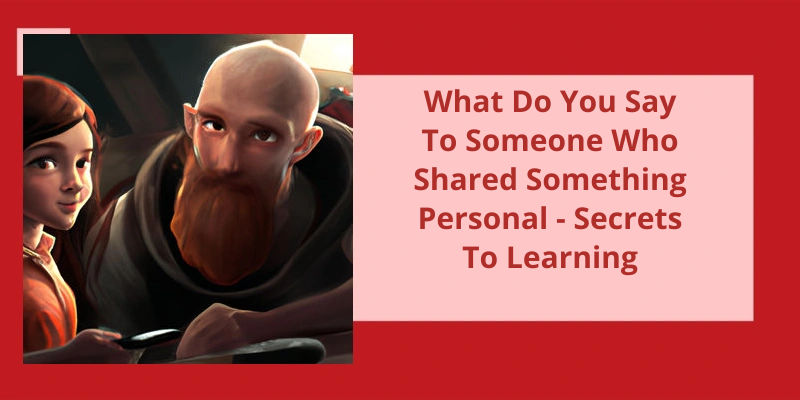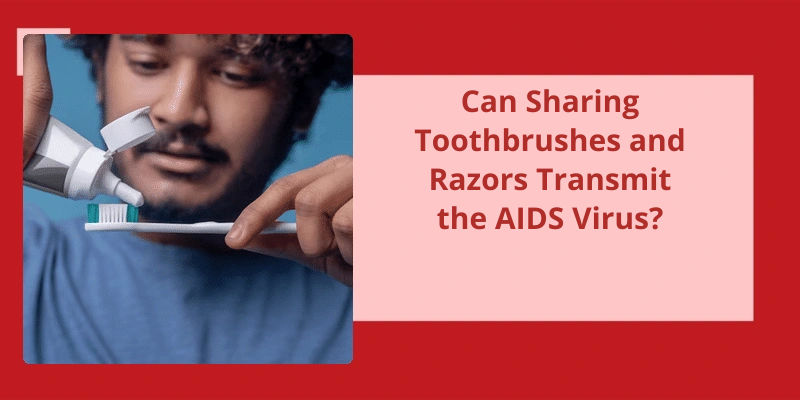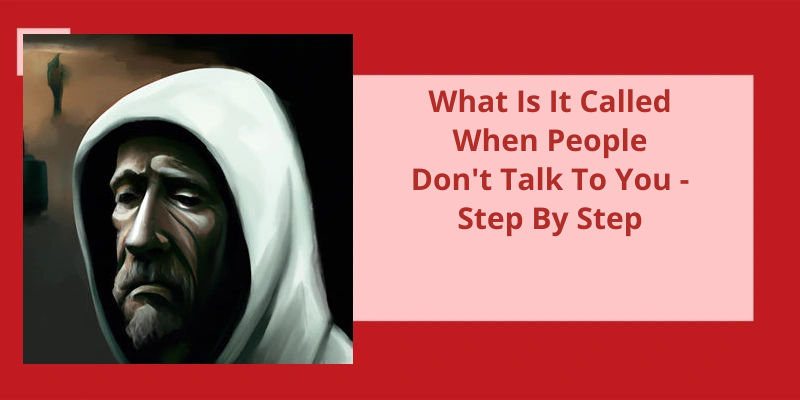When someone trusts you enough to share something personal, it’s both a privilege and a responsibility. These moments of vulnerability are an opportunity for deep human connection, growth, and learning. Knowing how to respond can make all the difference in fostering a supportive and safe environment for the person who’s shared their deepest secrets with you. In this article, we will unravel the secrets to learning how to respond effectively, empathetically, and respectfully when someone opens up to you, providing guidance on the power of active listening, validating emotions, and offering support. By mastering these skills, you won’t only deepen your relationships but also cultivate a culture of trust, understanding, and compassion.
What Does It Mean When Someone Shares Secrets?
Self-disclosure refers to the act of revealing personal information about oneself to others. It’s a vital aspect of human interaction and plays a significant role in building and maintaining relationships. When someone shares a secret with us, it signifies a level of trust and intimacy. It shows that they’re comfortable enough to open up and share something private.
When we share secrets with someone, we’re essentially inviting them into our inner world. We’re allowing them to understand us on a deeper level, and this can foster a sense of closeness and connection. By revealing something personal, we’re saying that we value their opinion and judgment, and we’re seeking understanding and support.
However, it’s important to remember that when someone shares a secret with us, it isn’t our place to gossip or betray their trust. It’s essential to handle their vulnerability with care and respect. By keeping their secret, we demonstrate our reliability and integrity, reinforcing their belief in our trustworthiness.
It signifies a trust and openness that fosters a deeper connection between individuals. It’s a shared experience that allows for understanding and support, and it’s essential to handle these secrets with care and respect to uphold the trust that’s been placed in us.
The Importance of Maintaining Confidentiality and Trust When Someone Shares a Secret
When someone shares something personal with you, it’s crucial to prioritize maintaining confidentiality and trust. Respect their decision to confide in you by keeping their secret private, unless there are legal or ethical reasons to breach confidentiality. By honoring their trust, you create a safe space for open communication, allowing them to feel heard, validated, and supported. Building this trust is essential for nurturing strong relationships and promoting effective learning, as it encourages individuals to open up and share their experiences, knowledge, and perspectives without fear of judgment or betrayal.
I know that sharing can sometimes be challenging, and it means a lot to me that you trusted me enough to open up. Your vulnerability is appreciated, and I’m here to listen and support you.
How Do You Respond When Someone Shares Something With You?
Thank you for opening up and sharing that with me. It takes a lot of courage and trust to reveal something personal, and I want you to know that I truly appreciate your willingness to be vulnerable. I can imagine that it might have been difficult for you to share this, so please know that I’m here to listen and support you in any way I can.
Your willingness to share shows that you trust me and value our relationship, and I want you to know that I feel the same way. I’ll always strive to create a safe and non-judgmental space where you can feel comfortable sharing anything with me. You aren’t alone in whatever youre going through, and Im here to offer my support and understanding.
It’s important for me to acknowledge the act of sharing itself, rather than immediately jumping into offering advice or solutions. By doing so, I want to convey that I’m fully present and listening to you, without any preconceived judgments or intentions to diminish the significance of what youve shared. Your feelings are valid and deserve to be heard without interruption.
Please know that your trust and vulnerability are cherished and respected. We all have our struggles and challenges, and by sharing, you’ve shown immense strength and resilience. I’m honored to be someone you feel comfortable confiding in, and I’ll do my best to reciprocate that trust and offer any support or advice you may seek.
Remember, I’m here for you, and you can always count on me to lend a listening ear or a shoulder to lean on. You’ve my utmost respect and admiration for opening up, and I want to assure you that your sharing will never be taken lightly. We all need someone to lean on from time to time, and Im grateful to be that person for you.
Maintaining Confidentiality: Discussing the Importance of Keeping the Information Shared With You Confidential and How to Ensure That the Person Feels Safe and Secure in Sharing With You.
Maintaining confidentiality is crucial when someone shares something personal with you. It shows respect, trust, and creates a safe space where individuals feel comfortable opening up.
Firstly, it’s essential to recognize the importance of keeping the information confidential. Understand that the person trusted you enough to share something personal, and it’s your responsibility to respect their privacy.
To ensure confidentiality, avoid discussing their personal information with others without their consent. Never share it with anyone who isn’t directly involved or doesn’t need to know. This builds trust and reinforces that you value their privacy.
Additionally, be mindful of where and when you’ve conversations about the information shared. Choose a private setting where others can’t overhear. Being discreet helps the person feel safe, secure, and encourages open communication.
Lastly, always ask for permission before discussing their personal issues or experiences with others. This demonstrates respect for their boundaries and allows them to have control over their narrative.
By maintaining confidentiality and creating a safe space, you encourage open communication, trust-building, and provide support to those who share something personal with you.
If your friend shares a serious secret with you, consider reciprocating and sharing one with them. Knowing that they’re keeping your secrets may make you more likely to hold on to theirs as well. Make sure the secret you share is similar to theirs.
What Will You Do if Your Friends Share a Secret With You?
When a friend shares something personal with you, it’s important to respond in a supportive and empathetic manner. Instead of brushing off their disclosure or immediately offering advice, take the time to actively listen and validate their feelings. Let them know that you appreciate their trust in confiding in you and that youre there for them. This can help strengthen your bond and encourage them to open up further.
If your friend has trusted you with a serious secret, it can be helpful to reciprocate by sharing something personal with them as well. This can create a sense of equality and trust in your friendship. However, it’s crucial to ensure that the secret you share is similar in nature and magnitude to theirs. Sharing a comparable secret can’t only deepen the connection between you but also convey that you value their trust and are willing to be vulnerable with them as well.
Keep in mind that reciprocation isn’t about one-upping the other person or diminishing the importance of their secret. Instead, it’s about fostering a safe and non-judgmental environment where both parties feel comfortable discussing personal matters. By reciprocating with a similar secret, you communicate that you understand the weight and significance of what they shared with you and that you trust them with your own vulnerabilities.
It’s important to consider the timing and appropriateness of sharing your secret. Make sure the conversation is already centered around personal disclosures and that both you and your friend are ready to engage in such a level of intimacy. It’s also essential to gauge the level of trust in your friendship before sharing a sensitive secret. If youre unsure about their ability to keep your secret, it may be best to hold back and continue building trust over time.
How to Maintain Boundaries When a Friend Consistently Shares Secrets With You
- Listen actively and empathetically.
- Avoid asking probing or judgmental questions about their secrets.
- Be honest about your own comfort level with keeping secrets.
- Set boundaries by clearly communicating what you’re willing and not willing to keep confidential.
- Suggest alternative sources of support, such as professional counseling or helplines.
- Encourage your friend to respect your boundaries and seek professional help if necessary.
- Redirect conversations towards more positive or neutral topics.
- Take care of your own mental and emotional well-being.
- Consider seeking guidance from a therapist or counselor to navigate this situation.
It’s always a shock to discover that someone you trusted with your secrets has been sharing them. When faced with such a situation, it’s important to take control and address it head-on. One way to effectively handle this betrayal is by editing what you share with that person, being more cautious about the information you reveal. Additionally, consider editing the time you spend together, giving yourself some space to process the breach of trust. Lastly, it’s important to manage your expectations and have a conversation with your friend, making it clear that their actions aren’t acceptable. By taking these steps, you can assert yourself and steer the friendship in a direction that aligns with your values and boundaries.
What to Do When Someone Shares Your Secrets?
When someone shares something personal with you, it’s important to approach the situation with empathy and respect. Sharing secrets requires a high level of trust, and betraying that trust can be incredibly hurtful. If you find out that a friend has shared your secrets, it’s essential to take control of the situation and address it directly.
One of the first steps to take is to assess the extent of the betrayal and evaluate the impact it’s had on you. Understanding the gravity of the situation will help you determine how to proceed and whether the friendship can be salvaged. It’s crucial to have an open and honest conversation with your friend, expressing your feelings and letting them know that what they did was not okay.
Editing what you share going forward is an essential aspect of rebuilding trust. Assessing the level of vulnerability you feel comfortable with is crucial to protect yourself from future harm. Sharing personal information should be done with caution, ensuring that it’s with someone who’s shown themselves to be trustworthy.
Editing the time you spend together can also be helpful. If you no longer feel comfortable or safe sharing personal details with this friend, it may be necessary to limit the amount of time you spend with them. This can help create boundaries and protect your privacy.
Finally, it’s important to edit your expectations for the friendship. Realizing that your friend has violated your trust may require recalibrating the level of trust you place in them. It’s crucial to acknowledge that not all friendships can be fully repaired after such a breach, and it’s okay to distance yourself or even end the relationship if necessary.
Ultimately, addressing the situation directly and taking control of your boundaries and expectations is essential when someone shares your secrets. It’s a difficult and painful experience, but by prioritizing your emotional well-being and self-respect, you can navigate the situation with strength and integrity.
Tips for Setting Boundaries With Friends to Protect Your Privacy
- Assess your comfort levels and determine what boundaries you want to set.
- Communicate your boundaries clearly and directly.
- Be firm and assertive when enforcing your boundaries.
- Respectfully decline requests that cross your boundaries.
- Take time for yourself and prioritize self-care.
- Regularly assess and adjust your boundaries as needed.
- Seek support from trusted friends or professionals if needed.
- Be aware of red flags and prioritize your safety.
- Distance yourself from toxic friendships if necessary.
- Remember that it’s okay to prioritize your privacy and well-being.
Source: When Friends Reveal Secrets You’ve Asked Them to Keep
People often find solace in opening up about their deepest secrets to someone they trust. The reasons behind this inclination can vary, but commonly, individuals feel comfortable confiding in those who possess exceptional listening skills and an empathetic disposition. They seek out individuals who don’t pass judgment or spread gossip, presenting themselves as safe havens for the weight of their secrets. Moreover, the need to unburden oneself is inherently human, and some individuals may simply feel compelled to share their secrets with someone they perceive as a trusted confidant.
Why Do People Share Their Secrets With Me?
When someone chooses to share their secrets with you, it can be a testament to the trust they place in your character. People often seek out those they believe to be good listeners, individuals who possess the ability to lend a sympathetic ear without judgment or spreading their personal confidences. It’s possibly because they recognize these qualities within you, that they feel comfortable enough to divulge their secrets.
It’s also worth considering that people may share their secrets with you as a means of seeking guidance or a different perspective. By opening up to someone else, they may hope to gain new insights or even reaffirm their own beliefs and choices. Sharing secrets can be a way for individuals to gain clarity or to seek validation for their emotions and experiences. In recognizing your ability to offer valuable advice or a fresh outlook, they may be drawn to confide in you.
Conclusion
In conclusion, navigating personal conversations with empathy and understanding requires a delicate balance of active listening, validation, and thoughtful response. By acknowledging the courage it takes for someone to share something personal, offering support and empathy, and respecting their boundaries, we can create a safe and trust-filled environment for open and meaningful communication. We must remember that everyone's experiences are unique, and there’s no one-size-fits-all approach to responding to personal revelations. The secrets to learning how to respond lie in our ability to be present, compassionate, and authentic in our interactions, fostering a deep connection and fostering personal growth for both parties involved.






